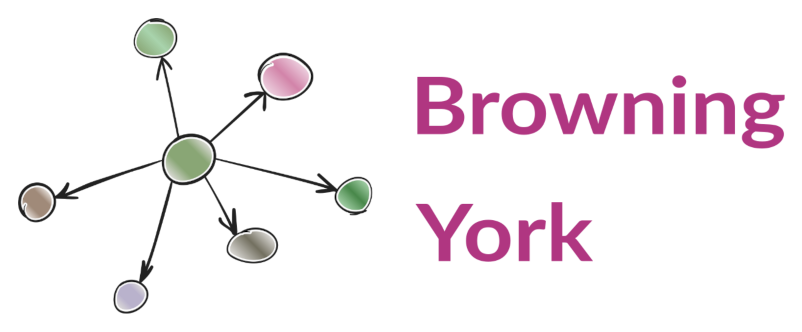Being kind has many elements to it. Showing kindness to others is an important aspect, as is treating yourself well. For this month’s ‘What If’ blog, I’m delighted to bring you this piece from Lucy Whitehall, a positive psychologist and coach who shares with us her personal story of self-compassion.
Imagine if you will, that your dear friend is struggling with something in their life and they come to you for support or advice. This lovely friend is someone you deeply care about and value. What is your first impulse?
I’m willing to bet you feel a surge of compassion and love for your friend. You sincerely want to help them and comfort them. That’s what we do with friends don’t we?
And what about times when you are finding something in your own day difficult? How do you approach your own struggles?
I’m my own worst enemy
I’ve lost count of the number of times I have heard that from my coaching clients over the years. And how many times have I noticed myself saying it too?
It became a mantra.
Comparison and perfection
But why do we say this? Why do we do this to ourselves?
Beating ourselves up when we make a mistake. Comparing ourselves to others and finding we don’t make the grade. Pushing ourselves to meet unrealistic deadlines. Trying to make things perfect even when we know intellectually that is an impossibility.
How much of that sounds familiar to you?
Over many hundreds of hours coaching, I’ve heard this a lot. Until I discovered and started working with mindful self-compassion.
What is mindful self-compassion?
At its simplest, self-compassion is treating ourselves as we would a dear friend. So, when we are in difficulty, struggling or suffering, we learn to soothe and protect ourselves.
If this sounds like self-care, well it is, but that’s generally superficial. Self-compassion is not about bubble baths and long walks – although please don’t let me stop you doing those lovely things which boost your wellbeing.
Self-compassion is more nuanced. It involves three elements:
- mindfulness (knowing when we are struggling in the moment and acknowledging it instead of ignoring it, resisting or trying to make it go away)
- Common Humanity (being able to recognise that all human beings struggle at times, and whilst our suffering may have different origins and intensity all humans experience the same emotions)
- self-kindness (offering ourselves the same gift of kindness as we would a dear friend).
Healthy steps forward
When we are ‘our own worst enemy’ the self-criticism can frankly be toxic. We simply wouldn’t talk to anyone we loved or respected the way we speak to ourselves. Science shows that self-criticism raises the same threat-defence mechanism in our brains and bodies as arises when we are being criticised, harmed or bullied by others. Stress hormones are raised, our focus narrows, we freeze, we want to escape or fight back.
Ever found yourself feeling angry at yourself because you missed a deadline or said something you wish you hadn’t in a meeting? Often, instead of gently encouraging ourselves to rectify the issue, take ownership, apologise or take the next positive step forward, we ruminate. We go round in circles in our minds, replaying the event, lamenting our mistake or our clumsiness and quickly spinning down into an unhealthy place.
Self-compassion enables us recognise how much it hurts to fail, to get things wrong, to feel inadequate or to unintentionally hurt others. However, instead of feeling sorry for ourselves, we learn to see the situation for what it is without minimising or over-identifying with it.
We can soothe ourselves in our moment of anguish, recognise that we are not alone, all human beings feel this way from time to time. We can then offer ourselves kindness and take the next healthy step forward.
Learning to practise self-compassion
Since I started my work in mindful self-compassion, I find myself practicing the skills every day. I recognise I am a slow learner and sometimes it is two steps forward and three or four back. And that is ok. There is a lot of learned behaviour to undo. I’m a recovering perfectionist and people pleaser!
I’m also coaching my clients in the practice of self-compassion – and I’ve found people are thirsty for these skills. Perhaps now more than ever as we try to find our way forward through the pandemic.
If this all sounds a bit soft and fluffy, well it is at times.
And it is also fierce.
Drawing personal boundaries is an integral part of self-compassion – being clear and assertive with ourselves and others about what we will and won’t accept and what is and is not good for us.
By the way, there is also twenty years of solid scientific research supporting self-compassion as a proven method for building resilience and growing meaningful relationships with others.
And if those aren’t good enough reasons for becoming your own inner ally, I don’t know what is!
Discover more here:
https://self-compassion.org/
https://www.youtube.com/watch?v=T_80y_CT32c&t=141s
Lucy is a positive psychologist and coach, passionate about supporting individuals and teams to flourish, transform and thrive. Continue the conversation about bringing more self-compassion into your work and life, via email, Instagram or LinkedIn.
The post What if….you were your own inner ally? appeared first on Time for Kindness.

